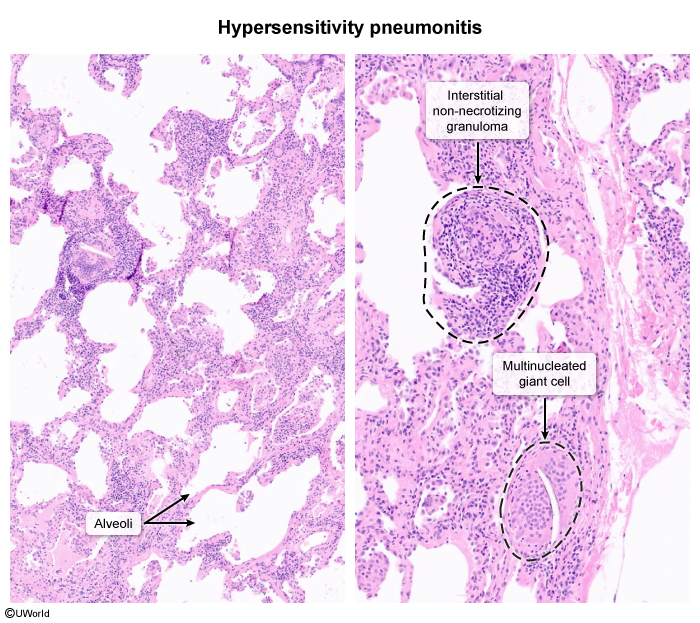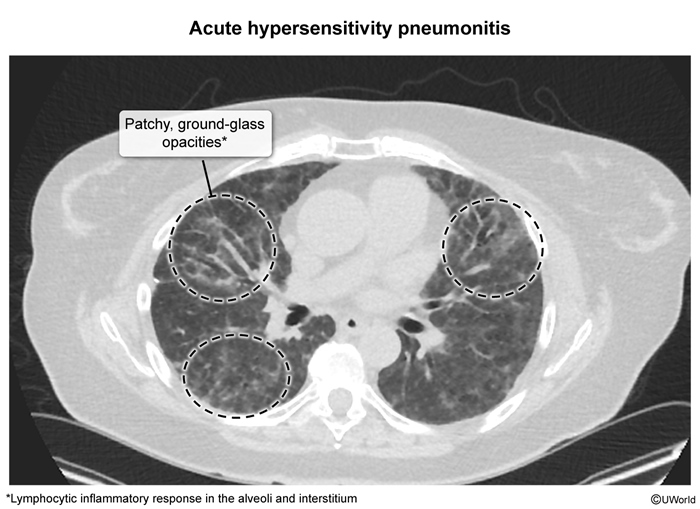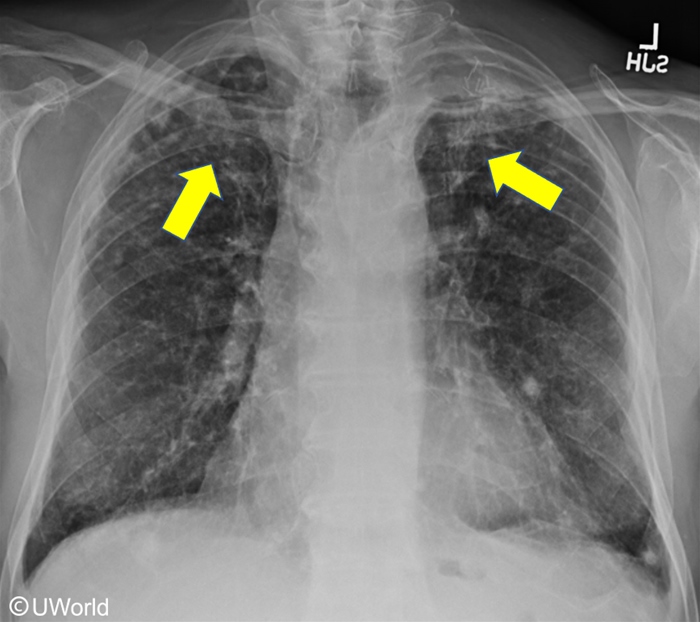Hypersensitivity Pneumonitis
Article Sections
Introduction
Hypersensitivity pneumonitis (HP) is an immune-mediated lung disease characterized by a granulomatous and lymphocytic inflammatory response to a range of inhaled organic antigens such as bird proteins (bird fanciers' lung) and soil bacteria and molds (farmers' lung). Most patients present with acute inflammatory HP, which is highly responsive to antigen removal and glucocorticoids. If acute HP is left untreated, chronic fibrotic HP can develop, leading to significant and permanent lung dysfunction.
Pathophysiology
HP involves a spectrum of type III (ie, immune complex) or type IV (ie, CD4+ T-cells, macrophages) hypersensitivity reactions against a broad range of inhaled organic antigens. Initial sensitization is asymptomatic but leads to memory B and CD4+ T-cells being generated. Continued or repeated antigen exposure can cause acute or chronic manifestations:
Continue Learning with UWorld
Get the full Hypersensitivity Pneumonitis article plus rich visuals, real-world cases, and in-depth insights from medical experts, all available through the UWorld Medical Library.
Unlock Full AccessImages


